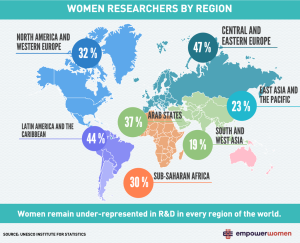
Science & Tech
How Canada is preparing for the next big earthquake
The last megathrust earthquake to strike Canada was in 1700, and the clock is ticking. How we’re preparing for the impact.
- 2809 words
- 12 minutes
This article is over 5 years old and may contain outdated information.
Science & Tech

No need to get shaken up about it.
New earthquake detectors by the University of British Columbia can warn of an upcoming earthquake before the ground actually starts shaking. Warning time can range from over a minute to five to 10 seconds, depending on the size and location of the epicentre of the earthquake.
“By the time you realize there’s an earthquake, you are already into the very heavy vibration,” says Carlos Ventura, director of the Earthquake Engineering Research Facility at UBC. “The idea (of the detectors) is to give you enough time to protect yourself.”

The detectors are currently being tested as a pilot project in 50 B.C. schools, with the goal of expanding to hospitals and other public areas, and eventually establishing a province-wide warning system. This early warning project and a similar system for the George Massey Tunnel between Delta and Richmond, B.C. are the only early warning systems in place in Canada, according to Alison Bird, a scientist at Natural Resources Canada.
“The technology is only as good as the people that use it,” Ventura says. “The alarm itself is not enough. We are advocating that people should know what to do when the alarm goes off because you may only have five or ten seconds before the shaking starts.”
He says those precious seconds are enough time to take necessary precautions, like ducking under a desk or turning off a stove. It can also warn a train to halt, stop airplanes from refueling and close the valves, and warn doctors in the middle of laser or complicated surgery.
The on-site detectors use two sensors to prove reliability of the system and reduce false alarms. They sense the faster moving P-waves of earthquakes, which are usually followed by stronger and more damaging S-waves.
“Earthquakes are extremely common in Canada, with roughly 3,000 to 4,500 occurring each year, and approximately 50 of these are felt,” Bird says. The west coast of British Columbia has the greatest amount of the country’s earthquakes, and Manitoba has the least.
There is also considerable seismic activity in eastern Canada around the St. Lawrence and Ottawa Rivers, as well as the Charlevoix Region of Quebec.
Similar early warning technology is already in place in California, Mexico, Japan and Taiwan.
Are you passionate about Canadian geography?
You can support Canadian Geographic in 3 ways:

Science & Tech
The last megathrust earthquake to strike Canada was in 1700, and the clock is ticking. How we’re preparing for the impact.

Science & Tech
As geotracking technology on our smartphones becomes ever more sophisticated, we’re just beginning to grasps its capabilities (and possible pitfalls)

Science & Tech
From Roberta Bondar to Harriet Brooks, Canada has more than its fair share of women scientists to be proud of. However women are still a minority in the STEM fields

Environment
British Columbia, Washington State and Oregon sit on a fault line that is capable of producing some of the strongest earthquakes on the planet. A new book reveals it’s not a matter of if, but when the next “Big One” will strike.